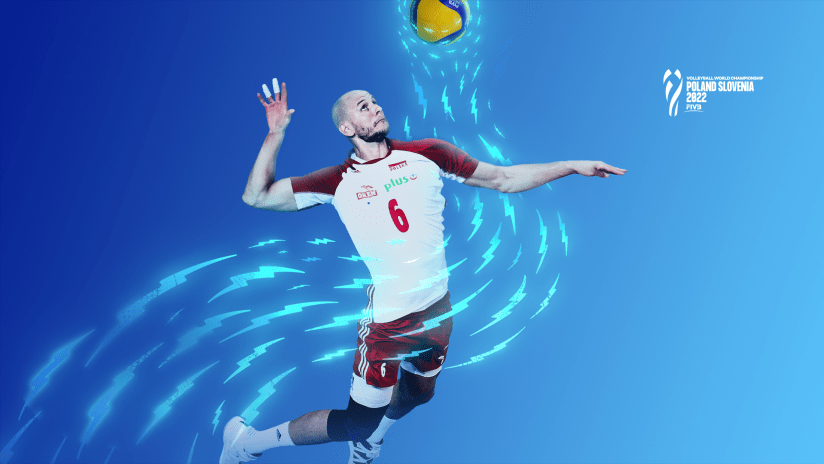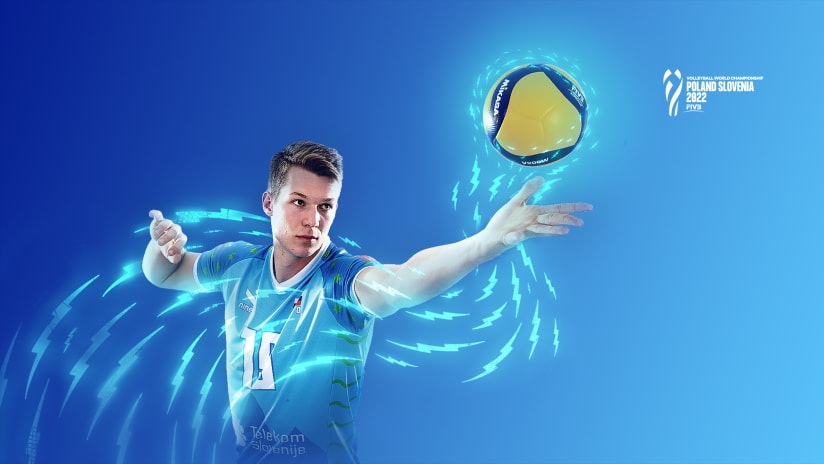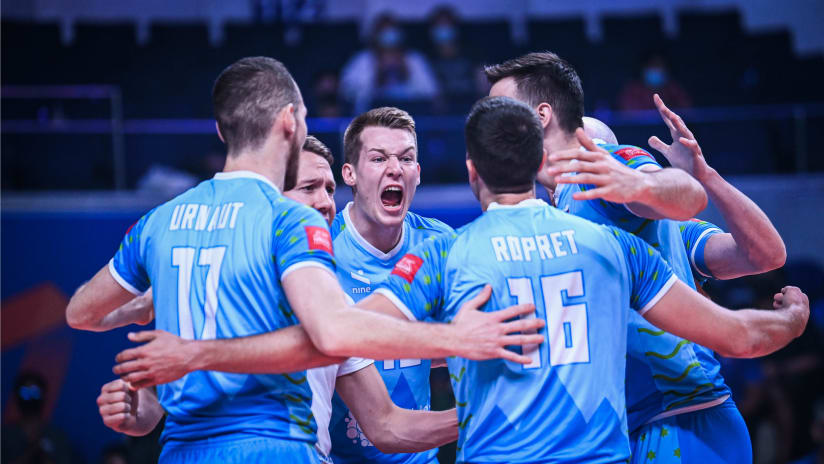The FIVB Volleyball Men's World Championship is the oldest world-level competition on the volleyball calendar and the sport’s most prestigious event. From August 26 through September 11, it will hold its 20th edition in Poland and Slovenia after it was launched 73 years ago, in 1949.
Men's World Championship 2022
Men’s World Championship to celebrate 20th edition
A short history of volleyball's flagship event
Pubblicato 07:00, 02 ago 2022
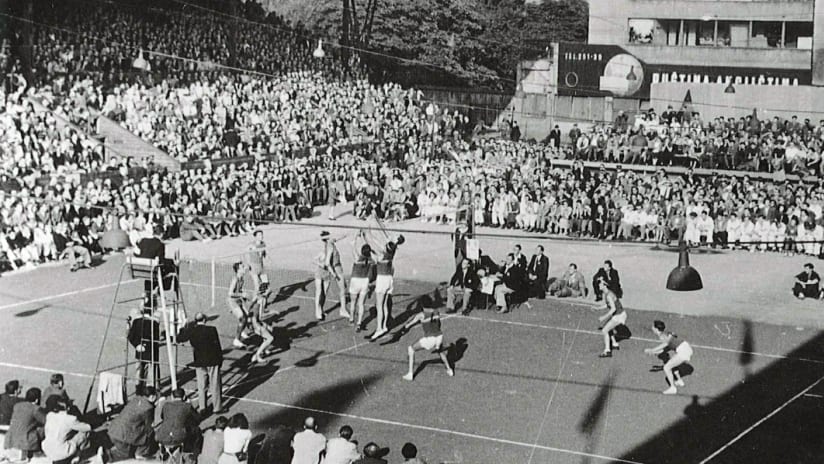
Prague hosted the first edition of the Men's World Championship in 1949
· Watch all FIVB Volleyball Men’s World Championship 2022 matches live on Volleyball TV.
Two years after the FIVB was founded in 1947, it organised its first Men’s World Championship in the capital of Czechoslovakia, Prague in September 1949. Initially, Uruguay were supposed to take part, but after their withdrawal, the tournament was an all-European affair with 10 participating teams. The first set of medals were claimed by the USSR, hosts Czechoslovakia and Bulgaria.
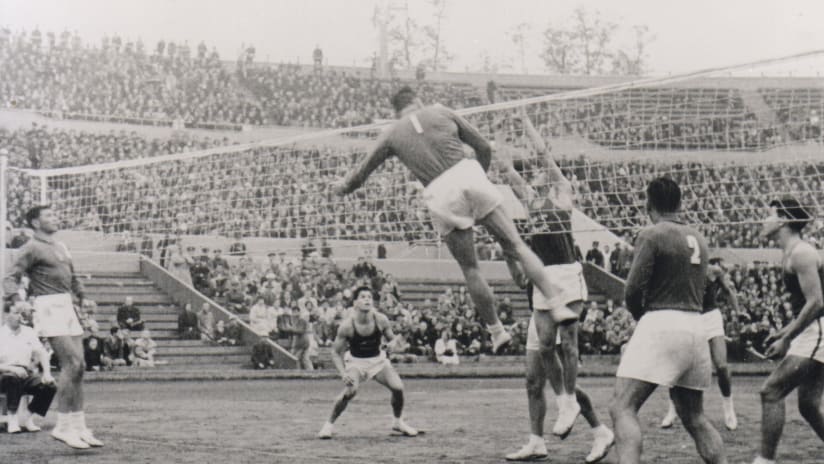
The Moscow 1952 World Championship attracted about 25 thousand spectators on each competition day
In 1952, the first world champions hosted the second edition in Moscow. Among the 11 competing teams, India, Israel and Lebanon were the first non-European participants. In the end, the podium had the exact same configuration, with the Soviet Union claiming their second gold, Czechoslovakia earning silver and Bulgaria taking bronze.
This and the next two World Championships were held in the same years as the Olympic Games. In 1956, at the first edition played indoors, the French capital Paris welcomed as many as 24 competing teams, including the first participants from the western hemisphere – Brazil, Cuba and USA. This time, Czechoslovakia won their first title, and were joined by Romania and USSR on the podium. Four years, later Brazil organised the first World Championship outside Europe and the first to be played in multiple host cities. The same teams made the podium, however in a different order – USSR, Czechoslovakia, Romania.
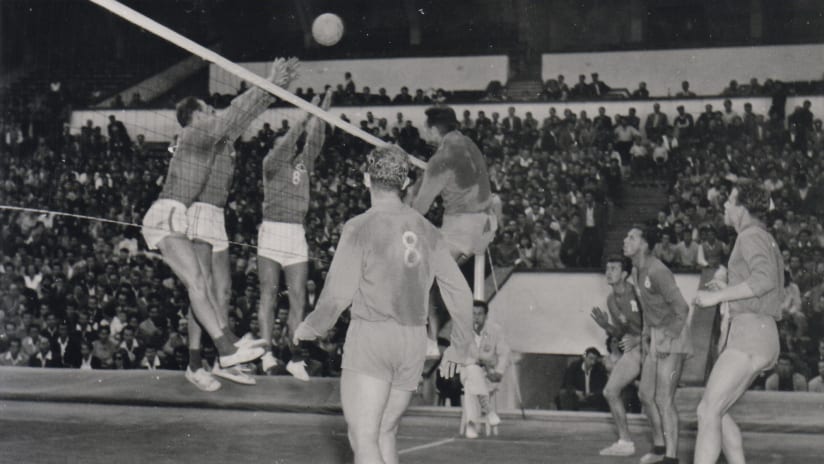
A shot from the Paris 1956 World Championship
Once volleyball was approved as an Olympic sport and about to make its debut at the Tokyo 1964 Games, the four-year World Championship cycle was advanced by two years and the fifth edition took place in 1962, again in USSR, in four cities in the then-Soviet republics of Latvia, Russia and Ukraine, producing the exact same podium as two years earlier. Tunisia’s participation in that tournament marked Africa’s World Championship debut.
Czechoslovakia took their second title when they hosted the event again in 1966. It was played in one Slovak and four Czech cities. Once again, Romania and USSR took the other two medals. For the first time the number of participating teams was restricted and some form of qualifiers were organised. However, with no qualified African teams actually arriving for the competition, it was the next edition in 1970 when all five continental confederations were simultaneously represented for the first time.
That year East Germany celebrated their first world title after mastering an incredible tie-breaker comeback from 13‑5 behind against hosts Bulgaria in the deciding match for the gold medals in Sofia. GDR’s Rudi Schumann was the first athlete to be honoured as a World Championship MVP. Japan took the bronze and became the first non-European team to medal at the World Championships.
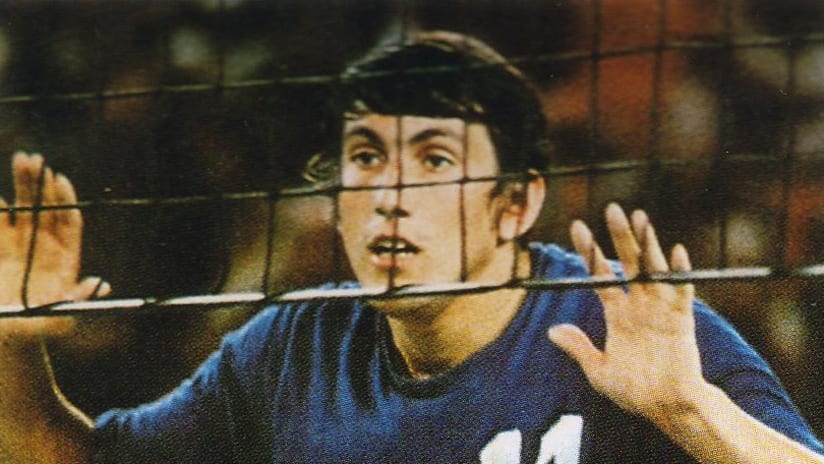
East Germany’s Rudi Schumann, the first MVP in the history of the World Championships, at Bulgaria 1970
Poland claimed their first world title at Mexico 1974, accompanied by the Soviet Union and Japan on the podium. While until that point the various stages of the World Championships were played in round-robin formats, the first knockout rounds were introduced at Italy 1978, when the Soviets regained the crown by shutting out the hosts in the first-ever World Championship final. Cuba won the third place match to claim their first medal.
In 1982, USSR defended the title by sweeping Brazil in the final and hosts Argentina settled for bronze, the first World Championship medals for both South American nations. The United States of America were the first non-European team to top a World Championship podium. They did so after winning the France 1986 final against the Soviets, while Bulgaria took the bronze. The number of participating teams for that and the next two editions was limited to 16.
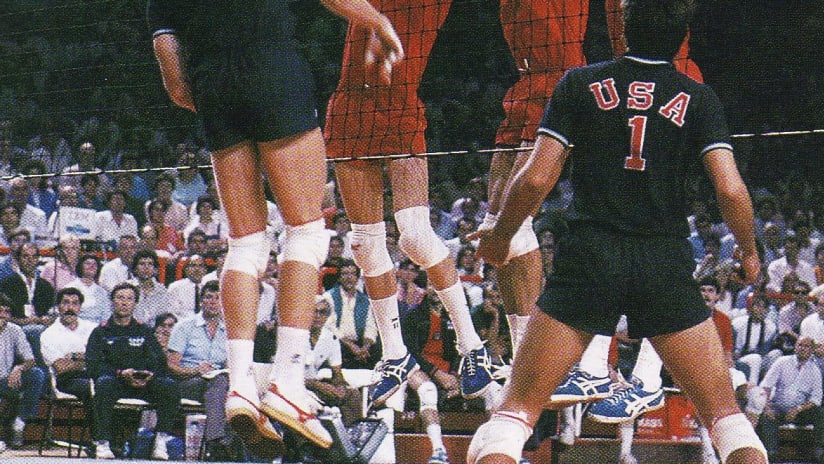
USA v USSR at France 1986
The national team of Italy dominated the 1990s, claiming all three World Championship titles during that decade. In 1990, Cuba earned silver and hosts Brazil took bronze. At Greece 1994, the Netherlands lost the final to Italy for their first World Championship podium, while USA claimed bronze. Four years later, Yugoslavia and Cuba joined the three-time back-to-back world champs on the podium in Japan.
The next decade was dominated by Brazil. Already playing under the newly-introduced rally-point systems with sets to 25, the South Americans won the titles at Argentina 2002, Japan 2006 and Italy 2010 after beating Russia, Poland and Cuba in the respective finals. The bronze medals at these three editions went to France, Bulgaria and Serbia, respectively.
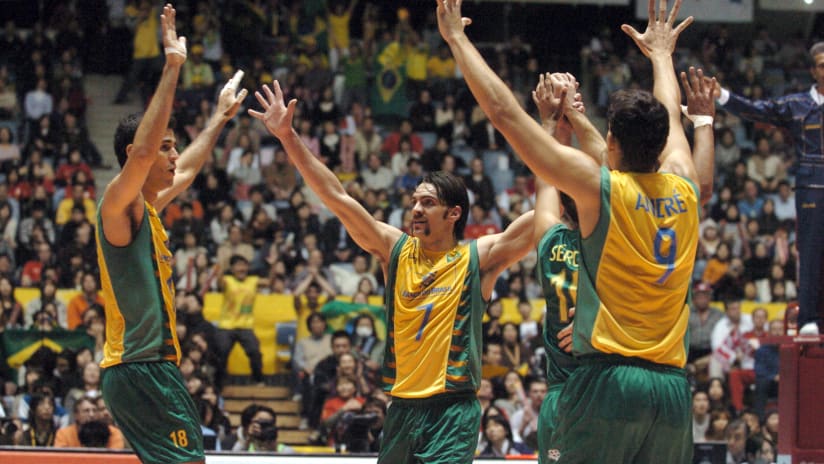
Giba and his Brazilian teammates celebrate during the Japan 2006 final against Poland
The two most recent editions of the World Championships were won by Poland, who defeated Brazil in both gold medal matches. The Poland 2014 bronze was claimed by Germany. The podium at Italy-Bulgaria 2018 was completed by USA.
The 2018 World Championship was the first to be co-hosted by two countries and the upcoming 2022 edition will be the second time that happens as Poland and first-time hosts Slovenia join efforts in organising the FIVB’s flagship event.
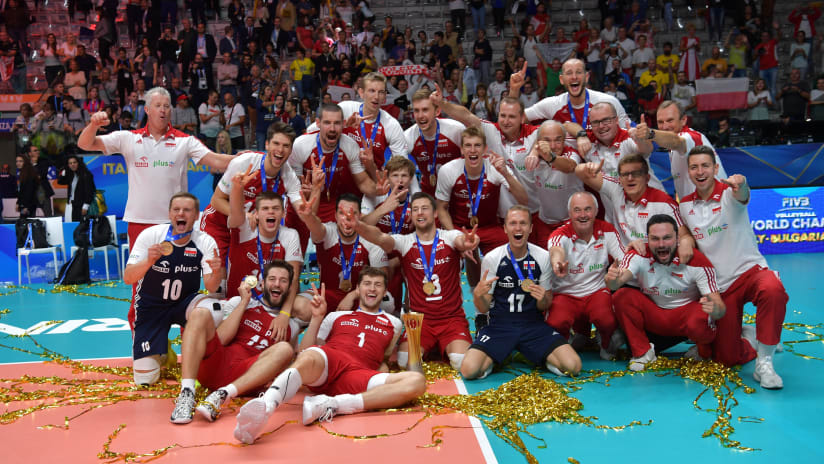
Italy-Bulgaria 2018 world champs Poland
To sum it up, the Soviet Union lead the way with six World Championship titles. Brazil, Italy and Poland are three-time world champions. Czechoslovakia topped the podium twice. USA and GDR are the only other teams to have triumphed as world champions.
Russia (including USSR) also top the chart on the number of medals won with 12, followed by Brazil and Czechoslovakia with six each and Bulgaria with five.


